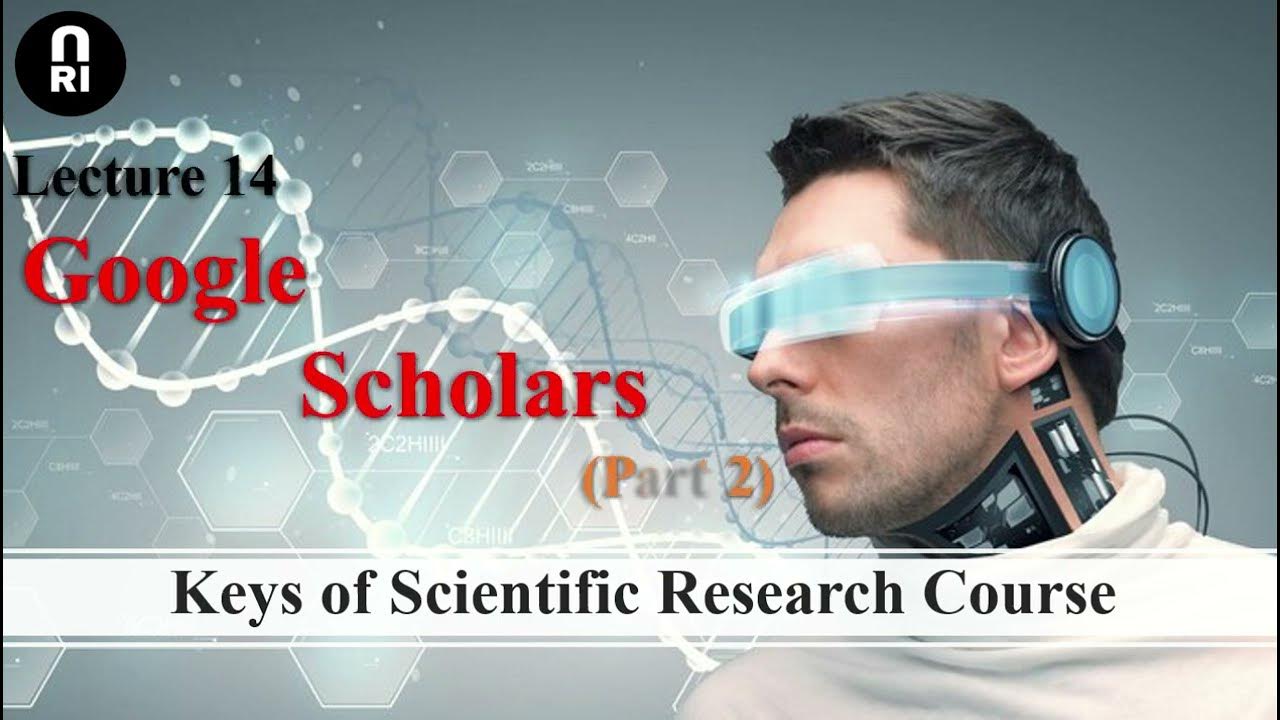Lecture(20)Scopus Research Engine _ سكوبس كمحرك بحثي
Summary
TLDRIn this educational lecture, the speaker Abdullah Al-Wakeel continues the discussion on 'Scoop' accounts, emphasizing the importance of creating an account to access valuable information shared by others. He guides viewers on how to search for specific topics, researchers, or institutions using advanced search techniques on Google Scholar. The lecture covers how to refine searches, identify reputable sources, and follow experts in various fields. It also touches on the importance of understanding the research landscape and staying updated with the latest publications.
Takeaways
- 🌐 The lecture discusses the importance of creating a Google Scholar account to increase visibility and accessibility of one's research.
- 🔍 The speaker emphasizes the use of Google Scholar for searching specific topics, authors, or institutions and understanding the impact and stance of various research entities.
- 📈 The lecture highlights how to refine search results on Google Scholar by using filters such as 'Open Access', 'Include Citations', and 'Published in the last year'.
- 🔑 The presenter explains the significance of knowing who is active in one's field of research and suggests following renowned scientists to stay updated with the latest findings.
- 📚 The script mentions the ability to search for publications by specific authors or institutions and how to track their work for potential collaboration.
- 📊 The lecture points out how to identify the most active and influential researchers in a particular field over a specified period, such as the last two years.
- 🏛️ The speaker discusses the utility of Google Scholar for exploring research within specific institutions, which can help in choosing where to apply for studies or research positions.
- 📈 The script explains how to use Google Scholar to find the latest publications in a field of interest and assess the type of research being conducted.
- 🌟 The lecture suggests using Google Scholar to identify the top scientists in a particular field or institution, which can be beneficial for networking and collaboration.
- 📝 The presenter concludes by emphasizing the importance of these skills for anyone beginning scientific research, making it easier to find and connect with relevant research and researchers.
Q & A
What is the main topic of the lecture by Abdullah Al-Wakil?
-The main topic of the lecture is about using Scopus to search for scientific research, authors, and institutions.
Why is it important to register an account on Scopus according to the lecture?
-It is important to register an account on Scopus to receive notifications about new research and to have access to a wide range of features that help in research and collaboration.
What are the three main concepts discussed in relation to Scopus?
-The three main concepts discussed are searching for a specific topic, finding a particular author's profile, and identifying the institutions and their positions or stances on certain research areas.
What does the term 'source' refer to in the context of Scopus?
-In the context of Scopus, 'source' refers to the primary or fundamental material found in scientific journals.
How can one use Scopus to search for research on a specific topic?
-One can use Scopus to search for research on a specific topic by entering keywords or phrases into the search bar and filtering the results based on various criteria such as open access, publication year, and author.
What is the significance of the number 17000 mentioned in the lecture?
-The number 17000 refers to the number of results that appeared in a search, indicating the vast amount of research available on Scopus.
How can Scopus help in identifying active researchers in a specific field?
-Scopus can help identify active researchers by showing their publication history, citations, and the impact of their work, allowing users to determine who is currently influential in a particular field.
What is the importance of following researchers and their work as mentioned in the lecture?
-Following researchers and their work is important to stay updated with the latest research, potentially collaborate, and to understand the direction and trends in a specific field of study.
How can one use Scopus to find out about the research output of a particular institution?
-One can use Scopus to find out about the research output of a particular institution by searching for the institution's name and filtering the results to show publications from that institution.
What does the term 'H-index' refer to in the context of the lecture?
-The 'H-index' refers to a metric that measures both the productivity and citation impact of a researcher's work. It is used to evaluate the scientific output of researchers.
How can Scopus be used to compare researchers within the same field?
-Scopus can be used to compare researchers within the same field by looking at their publication records, citation counts, H-index, and the impact of their work.
Outlines

此内容仅限付费用户访问。 请升级后访问。
立即升级Mindmap

此内容仅限付费用户访问。 请升级后访问。
立即升级Keywords

此内容仅限付费用户访问。 请升级后访问。
立即升级Highlights

此内容仅限付费用户访问。 请升级后访问。
立即升级Transcripts

此内容仅限付费用户访问。 请升级后访问。
立即升级5.0 / 5 (0 votes)






